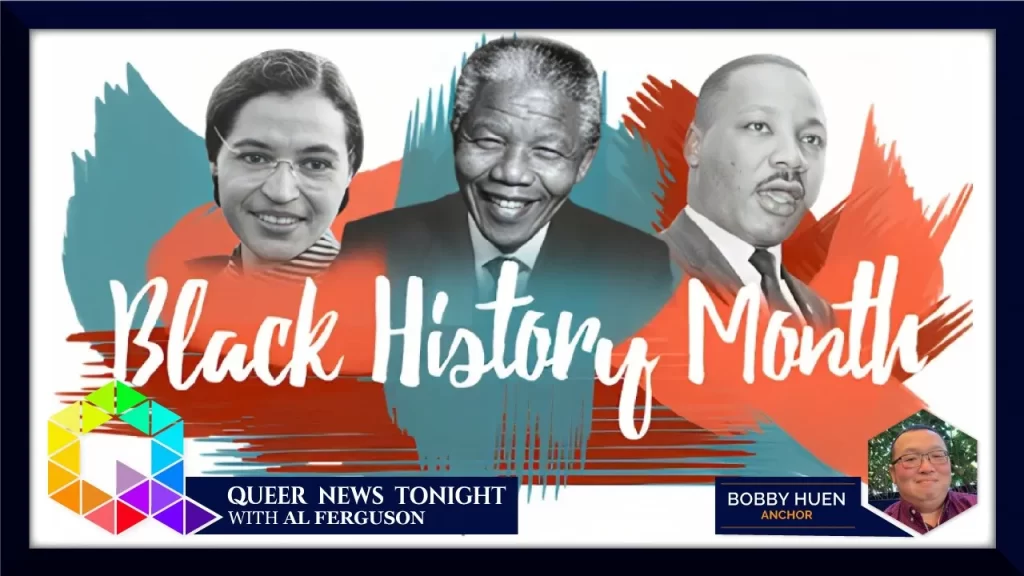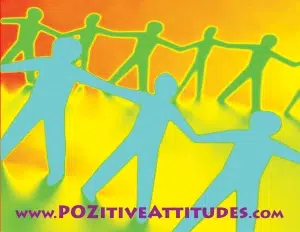Black History Month was started by historian Carter G. Woodson in 1926. There are several organizations that help to celebrate and promote Black History Month, including the National Association for the Advancement of Colored People (NAACP), the National Museum of African American History and Culture, and the National Black Justice Coalition (NBJC). Happening Out Television Network is celebrating Black History Month, giving tribute to trailblazing activists and pioneers. Here is a list of famous and notable LGBTQ+ Activists who contributed to and supported the black LGBTQ+ community members and paved the better for them. Miss Major Griffin-Gracy, a transgender rights activist and veteran of the Stonewall riots. Angela Davis, a feminist, scholar, and political activist known for her activism and advocacy around issues of race, gender, and social justice. Sylvia Rivera, a transgender rights activist and veteran of the Stonewall riots. Marsha P. Johnson, a transgender rights activist and veteran of the Stonewall riots. Bayard Rustin, a civil rights activist and advisor to Martin Luther King Jr., and Audre Lorde, a feminist, poet, and writer known for her activism and advocacy around issues of race, gender, and sexuality. Apart from these names, we celebrate activists like Ruby Corado, Keith Boykin, and Laverne Cox this Back History Month
Why Do We Celebrate Black History Month?
Every February, the U.S. honors the contributions and sacrifices of African Americans who have helped shape the nation. Black History Month celebrates the rich cultural heritage and triumphs.
This year's theme, Black Health and Wellness pays homage to medical scholars and healthcare providers. The theme is especially timely as we enter the third year of the COVID-19 pandemic, which has disproportionately affected minority communities and placed unique burdens on Black healthcare professionals.
Sara Clarke Kaplan, executive director of the Antiracist Research & Policy Center at American University says, "There is no American history without African American history.” The Black experience, she says, is embedded in "everything we think of as 'American history.' "
Before Black History Month, there was Negro History Week
Critics have long argued that black history should be taught and celebrated year-round, not just during one month each year.
According to W. Marvin Dulaney, it was Carter G. Woodson, the "father of Black history," who first set out in 1926 to designate a time to promote and educate people about Black history and culture.
Woodson envisioned a weeklong celebration to encourage the coordinated teaching of Black history in public schools. He designated the second week of February as Negro History Week and galvanized fellow historians through the Association for the Study of Negro Life and History, which he founded in 1915.
The idea wasn't to place limitations but really to focus on and broaden the nation's consciousness.
As per Albert Broussard, a professor of Afro-American history at Texas A&M University, "Woodson's goal from the very beginning was to make the celebration of Black history in the field of history a serious area of study”
His idea eventually grew in acceptance, and by the late 1960s, Negro History Week had evolved into what is now known as Black History Month. Protests around racial injustice, inequality, and anti-imperialism that were occurring in many parts of the U.S. were pivotal to the change.
Colleges and universities also began to hold commemorations, with Kent State University being one of the first, according to Kaplan.
Fifty years after the first celebrations, President Gerald R. Ford officially recognized Black History Month during the country's 1976 bicentennial. Ford called upon Americans to "seize the opportunity to honor the too-often neglected accomplishments of Black Americans in every area of endeavor throughout our history," History.com reports.
Why February was chosen as Black History Month?
February was chosen primarily because the second week of the month coincides with the birthdays of both Abraham Lincoln and Frederick Douglass. Lincoln was influential in the emancipation of slaves, and Douglass, a former slave, was a prominent leader in the abolitionist movement, which fought to end slavery.
Lincoln and Douglass were each born in the second week of February, so it was traditionally a time when African Americans would hold celebrations in honor of emancipation.
Forty years after Ford formally recognized Black History Month, it was Barack Obama, the nation's first Black president, who delivered a message of his own from the White House, a place built by slaves.
He said, "Black History Month shouldn't be treated as though it is somehow separate from our collective American history or somehow just boiled down to a compilation of greatest hits from the March on Washington or from some of our sports heroes. It's about the lived, shared experience of all African Americans, high and low, famous and obscure, and how those experiences have shaped and challenged and ultimately strengthened America.”
Not just the US, Canada also commemorate Black History Month in February, while the U.K. and Ireland celebrate it in October.
Happening Out Television Network is also celebrating Black History Month by offering tribute to trailblazing activists and pioneers. Here is a list of some of the notable black LGBTQ+ activists who are setting examples for the modern world and paving the way toward an inclusive and safer future.
Miss Major Griffin-Gracy – Transgender rights activist and veteran of the Stonewall riots.
Angela Davis – Feminist, scholar, and political activist, known for her activism and advocacy around issues of race, gender, and social justice.
Sylvia Rivera – Transgender rights activist and veteran of the Stonewall riots. She was a veteran of the Stonewall riots in 1969.
Marsha P. Johnson – Transgender rights activist and veteran of the Stonewall riots. She was a veteran of the Stonewall riots in 1969 and was a co-founder of Street Transvestite Action.
Bayard Rustin – Civil rights activist and advisor to Martin Luther King Jr. He was an advisor to Martin Luther King Jr.
Audre Lorde – Feminist, poet, and writer known for her activism and advocacy around issues of race, gender, and sexuality.
Ruby Corado – Transgender rights activist and founder of Casa Ruby, a community center for LGBTQ individuals in Washington, D.C.
Keith Boykin – Civil rights activist, writer, and television commentator, known for his activism and advocacy around issues of race, gender, and sexuality.
Laverne Cox
(she/her) – Transgender rights activist and actress, known for her role in the Netflix series “Orange is the New Black”. Cox is the first openly transgender person to be nominated for a Primetime Emmy Award.
The list is long but not enough. As much as the leaders and celebrities of the community are taking care of the education, safety, and progress of the black community, it is our responsibility also to ensure we contribute to society to make it a better place for us and the future generation.


















